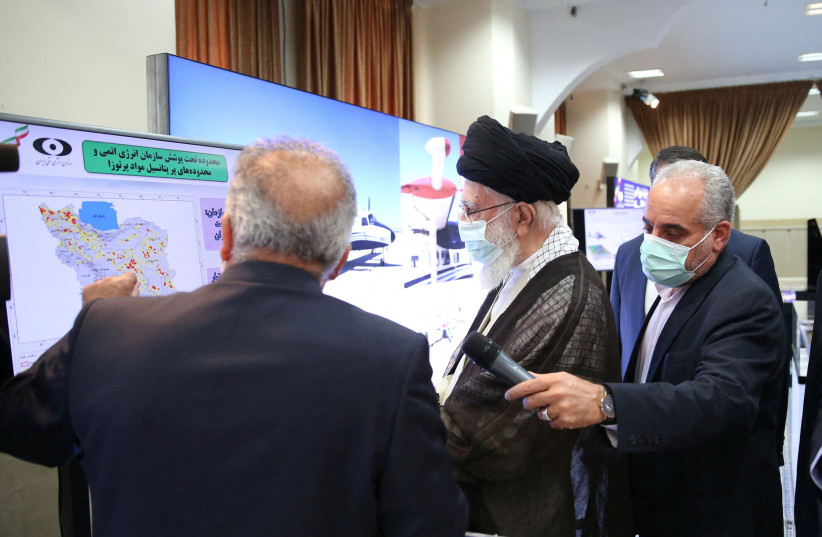Iranian pro-government media can generally be relied upon to present the Iranian regime’s narrative and also predict what Iran’s next moves may be. This means that paying close attention to the way the regime presents messaging is important to understand Tehran’s policies in the region. A recent article at Iran’s Tasnim News examined what it claimed were Israeli airstrikes in Damascus.
The report included several experts who commented on recent developments in Syria. In the article, one expert says “In this short period, from the terrorist explosions in Iran and the assassination of the martyr Seyed Razi Mousavi in the south of Damascus, the assassination of al-Arouri in the suburbs of Beirut, as well as Haj Sadiq (Omidzadeh)…The Zionists are trying to push the axis of resistance towards an all-out war in the region in every possible way and as a result, opens the feet of America and all western countries, even NATO and England, to a regional war.”

Risks of wider regional conflict
The messaging above examines the chances for a wider regional war. Iran calls its proxies the “axis of resistance” and this describes Iranian-backed militias in Syria, Hezbollah, Hamas, Palestinian Islamic Jihad, as well as the Houthis and militias. One of the pro-Iran militias in Iraq claimed they had tried to target Israel with a drone on January 22.
Iran is trying to push all these groups to confront Israel on various fronts and in various arenas. Israel’s leadership has mentioned these escalations. For instance, Israel’s Defense Minister has discussed the need to deter Hezbollah from further attacks in the north.
The question is now whether Iran truly believes that a regional war could happen when it is usually cautious in this respect. It wants to present Israel and the US with many challenges and carry out small attacks but is generally not willing to risk the destruction of any of its proxies.
Iran is deeply focused on Syria now and also several members of the IRGC who were killed in Damascus. Iranian media included other articles on this issue on January 23.
One claimed that Israel is now acting out of “desperation.” Another article highlighted the 24 IDF soldiers killed this week in Gaza and called this a major setback for Israel. In other reports, the Iranian regime said it had added new strategic “drones” to its arsenal and also the Iranian Supreme Leader threatened Israel.
US, allies carrying out larger strikes against Houthis in Yemen
Not only Iran is focused on this issue of a possible wider regional war. An article at Arab News also looked at the chances for wider regional escalation. Ghassan Charbel, editor in chief of Asharq al-Awsat, wrote about “Iran on the borders of Israel. He writes “Qassem Soleimani was the architect of the Iranian thread linking Baghdad to Beirut via Damascus, in addition to the Yemeni breakthrough represented by the Houthis’ control.
When Yahya Sinwar launched the Al-Aqsa Flood on October 7 and Israel responded with its brutal war in Gaza, the Iranian thread had intensified on the four maps. Whether or not Iran had prior knowledge of the moment of the flood, its occurrence would have been impossible without its policies and arsenals that are scattered throughout the region.”
It appears now that various trends are coming together leading to concerns in Iran and elsewhere that escalation could occur. Western media has largely already gotten to the point of predicting regional escalation and has now gone back to focusing on other things.
Meanwhile, Iran’s regime must wonder whether operating proxies in Syria, Iraq, Yemen, and elsewhere is having the desired effect. The US and its allies are now carrying out larger strikes in Yemen. Hezbollah has lost more than 150 of its fighters. Hamas has lost 9,000 with thousands more wounded.
Iran’s proxies in Iraq are still active, but they have less to do these days. They have continued to threaten US forces in Iraq. This leaves many questions for Iran to ponder this week as it continues to digest what may come next in Syria and looks at other fronts against Israel. Iran likely does not think Israel wants a regional conflict. Instead, it is trying to trumpet this theory, perhaps as a way to climb down from such an eventuality.
